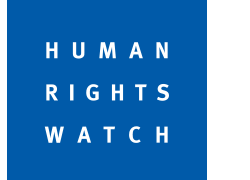Human Rights Watch (HRW) has said Libya’s Supreme Court should suspend death sentences against a former Gaddafi official and a pro-Gaddafi fighter whose trial raises due process concerns.
Military and civil courts have handed down at least 16 death sentences in 2012 and 2013, and another dozen in absentia. The government should announce an immediate moratorium on the death penalty and move toward abolishing it outright.
On July 31, 2013, the Misrata Appeals Court convicted Ahmed Ibrahim and Walid Dabnoon for crimes committed during Libya’s 2011 uprising, including murder and kidnapping, and sentenced them to death by firing squad. Lawyers for Ibrahim, a former Gaddafi-era official, and Dabnoon, a volunteer fighter in 2011 with pro-Gaddafi forces, told Human Rights Watch they were not able to meet with their clients privately or to question key witnesses. Ibrahim and Dabnoon appealed the conviction on September 22 to set in motion the process for a Supreme Court review of the death sentences.
“These tainted sentences contradict Libya’s commitment to uphold international fair trial standards,” said Joe Stork, acting Middle East and North Africa director at Human Rights Watch. “Given the number of people now on death row, and the general state of disarray in Libya’s justice system, Libya should impose an immediate moratorium on capital punishment.”
Under Libya’s Code for Criminal Procedures, the Supreme Court needs to confirm the death sentences and then the High Judicial Council needs to approve.
The Appeals Court convicted Ibrahim of “inciting civil war and creating discord among the population,” complicity in the kidnapping, and killing of members of a family in Sirte perceived to be anti-Gaddafi, in central Libya, on September 12, 2011. The accusations also included “spreading false rumors and fabrications during the state of war with the aim of terrorizing the population” and committing acts that “endanger the general public.”





